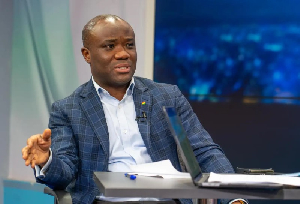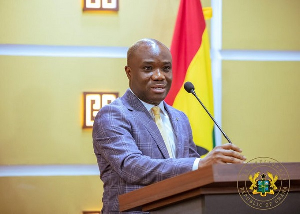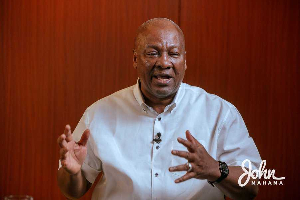The standard response from Steve Bruce, the manager of Sunderland, at mention of Asamoah Gyan is now a diplomatic silence. Last month, it was a snarl.
The manner of Gyan’s departure to Al Ain on loan from the English club never sat well with Bruce, even if the financial aspects of the deal were welcome to Sunderland’s treasurers.
You can understand how Bruce feels: his team sit one place off the Premier League’s relegation zone.
Last May, with Gyan, they finished in the top half of the table.
One man does not make a team. Sunderland’s strike force last term also included Danny Welbeck, now returned to Manchester United after his loan spell, and for half the campaign it featured Darren Bent.
They contributed 15 goals between them. But Gyan was the club’s leading marksman, with 10.
One man does not make a forward line, although if just one man has to play the lone striker you will not find many better at it than the dexterous, strong and quick Gyan.
“What he’s so good at is playing with his back to goal, holding the ball up,” said Andre Ayew, the Marseille midfielder and a colleague for the Black Stars, Ghana’s national team.
“The way we often play with Ghana, with Asamoah on his own as the No 9 and others guys coming up from midfield, he is so important to us for the way he can keep the ball. He’s also great on the counter-attack.”
Those are just some of the skills – he also has an elastic leap, for meeting high crosses – that had already taken Gyan to success in three leading European leagues by the time he turned 24.
Now 25, his arrival at Al Ain at the peak of his powers is quite a coup for UAE football.
Gyan began his career in his native Accra with the Liberty Professionals club, former home to a number of prominent Ghana players, Chelsea’s Michael Essien and Inter Milan’s Sulley Muntari among them.
Like Muntari, Gyan moved to Udinese in Italy’s Serie A as a teenager, spent a period on loan with Modena in Serie B before establishing himself as a reliable scorer against mean Italian defences.
He came to wider international prominence though at the 2006 World Cup.
It was the first of Ghana’s history. Gyan would be the principal architect of their victory against the Czech Republic, the result that propelled them into the second round and the last 16 of the competition.
Gyan scored a goal but missed a penalty that day.
It was not the last spot kick he would miss at a World Cup.
Gyan’s bad luck is that he may always be best known for a missed penalty.
He is in good company for that. Roberto Baggio, the Italy legend, bears the same fate for having put his shot over the bar in the 1994 World Cup final shoot-out – a miss that sealed defeat for Italy.
The broad, global view of the closing moments of the 2010 quarter-final between Ghana and Uruguay is sympathetic to Gyan.
It was he who, in front of more than 80,000 fans supporting Ghana in Soweto, was asked to do justice after Uruguay’s Luis Suarez deliberately handled a shot on the goal-line to prevent a match-winning goal at the end of extra time.
Gyan, hit the crossbar with his spot kick.
“We had all felt certain he would score,” Ayew said, “because he’s so good at penalties.”
Gyan has not forgotten the moment. “It not only haunts me but hurts me every time I think of it,” he said while addressing a seminar organised by Al Ain to educate their fans after the club was handed a four-match stadium ban for unruly crowd behaviour last season.
“I hurt the whole of Ghana by missing that penalty. But they have all come back and stood behind me in support.
“As a player, I was devastated and it still haunts me. It is something that I have to live on for the rest of my life.”
In the shoot-out that followed, a distraught Gyan recovered his poise well enough to score his penalty.
But Ghana still went on to lose, and their World Cup was over as it was Uruguay who went on to reach the semi-finals.
Gyan had responded sturdily to a previous setback, a moment of crisis with the Black Stars when, after some erratic finishing at the 2008 Africa Cup of Nations in Ghana, he threatened to leave the squad.
His family has been threatened and insulted and he and his brother Baffour, then also a Ghana regular, had endured enough.
“I have never come across anything like it,” said the Ghana coach of that time, Claude Le Roy, “It was nasty and it was unfair.
“I felt for Gyan and his family. I also knew how important he was for my team.”
Le Roy persuaded Gyan to stay; by the next continental championship, his goals were guiding Ghana to the final.
He would score another three at the World Cup last year, including a brilliant volley against the United States in the second round of the competition.
By then he had joined Rennes in Ligue 1, where, after an indifferent start, he scored regularly.
French audiences began to enjoy the celebratory dances he performs after goals: lithe, spiky manoeuvres which have become something of trademark since he delightedly jived after scoring against Nigeria at the 2010 Cup of Nations.
It should not be long before Gyan has the opportunity to do the same in a league game for Al Ain.
Sports Features of Thursday, 20 October 2011
Source: The National

















